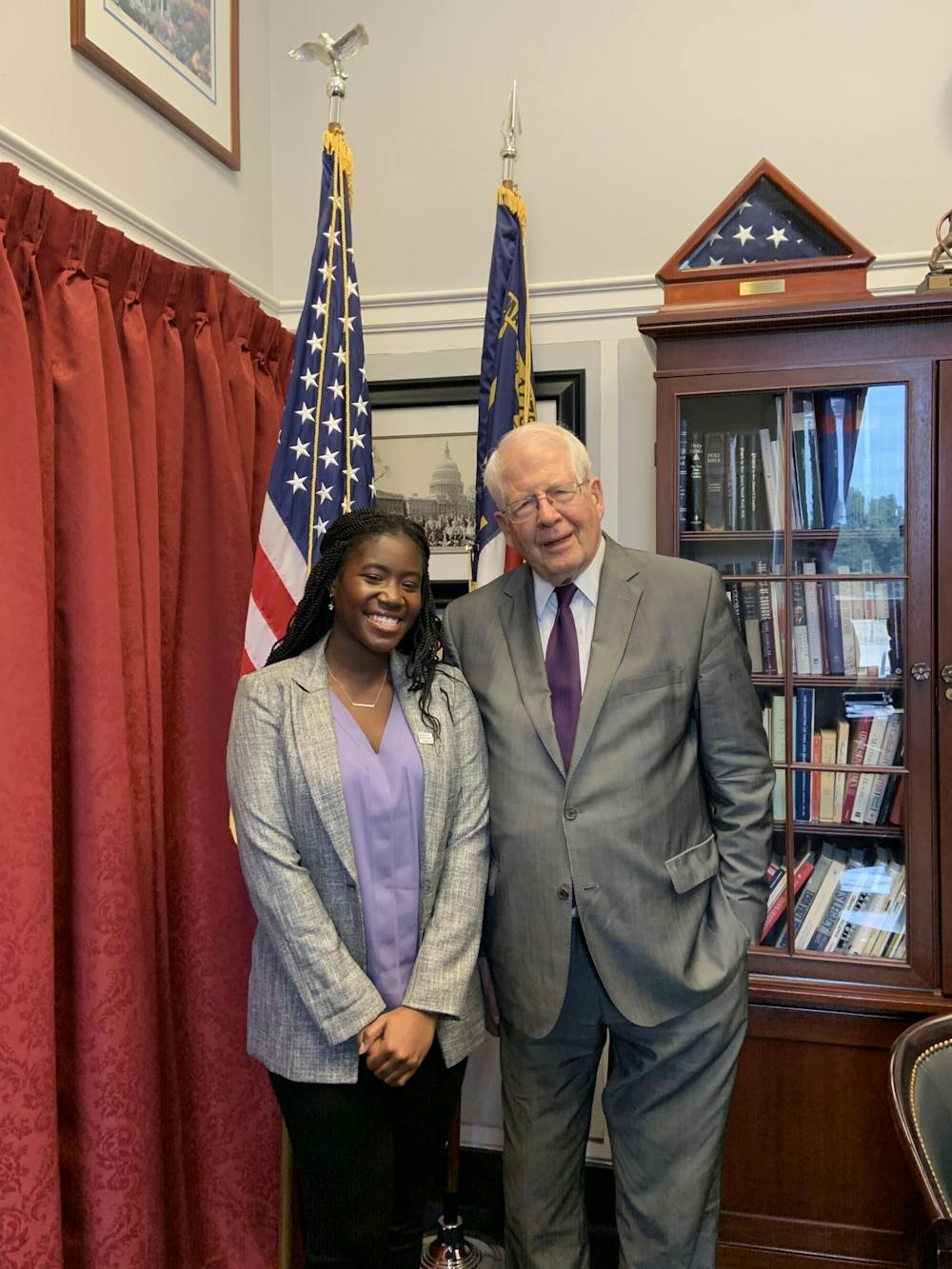U.S. Representative David Price (D-District 4) hosted the UNC March for Our Lives Chapter President Simone Afriyie as his guest for the State of the Union address on Tuesday, Feb. 4. Senior writer Brent Van Vilet talked with the two about the address, gun violence and more.
The Daily Tar Heel: Congressman Price, could you start by explaining why you invited Simone to the State of the Union?
David Price: It’s something we often do, members of Congress, particularly when we think the president and other leaders are not paying sufficient attention to important issues. I’ve had special guests in the past that focus on healthcare, focus on immigration. But this issue of gun violence is one that is really overdue for basic congressional attention.
We've had a frustrating time getting things done, but I think we’ve made headway. Part of the reason we're making headway is because activists like Simone and her fellow students at Carolina have organized — particularly after the Florida shooting, and young people have organized and made their voices heard. We need to listen to these voices and heed them.
DTH: Simone, could you share with me a little bit about how you got involved with March for Our Lives at UNC and what kind of activist work you do?
Simone Afriyie: I am from Sandy Hook, Connecticut. I grew up there. I’ve lived there for almost as long as I can remember. When the tragedy happened, I was pretty young. I didn't really understand a lot of the things that, you know, have been behind that, a lot of the legislation that you know is in place or not really in place that allows something like that to happen.
As I got older I realized that I needed to turn that into activism, I needed to help the students who were already part of the movement and do something on my own. So, this past year I got in contact with Josh Romero, who was previously the president of March for Our Lives.
It was not recognized as an official group on campus until this past semester when I became president, but I have a lot to owe to Joshua, who is now our state representative for March for Our Lives. It's been really good to start this activism on campus. Next semester we're hoping to do a little bit more to make sure that the whole community knows that this is something that they can be active with.
DTH: And just as a little follow up there. Have you seen, to the extent that you can speak to it, more activism following the UNCC shooting last spring?



